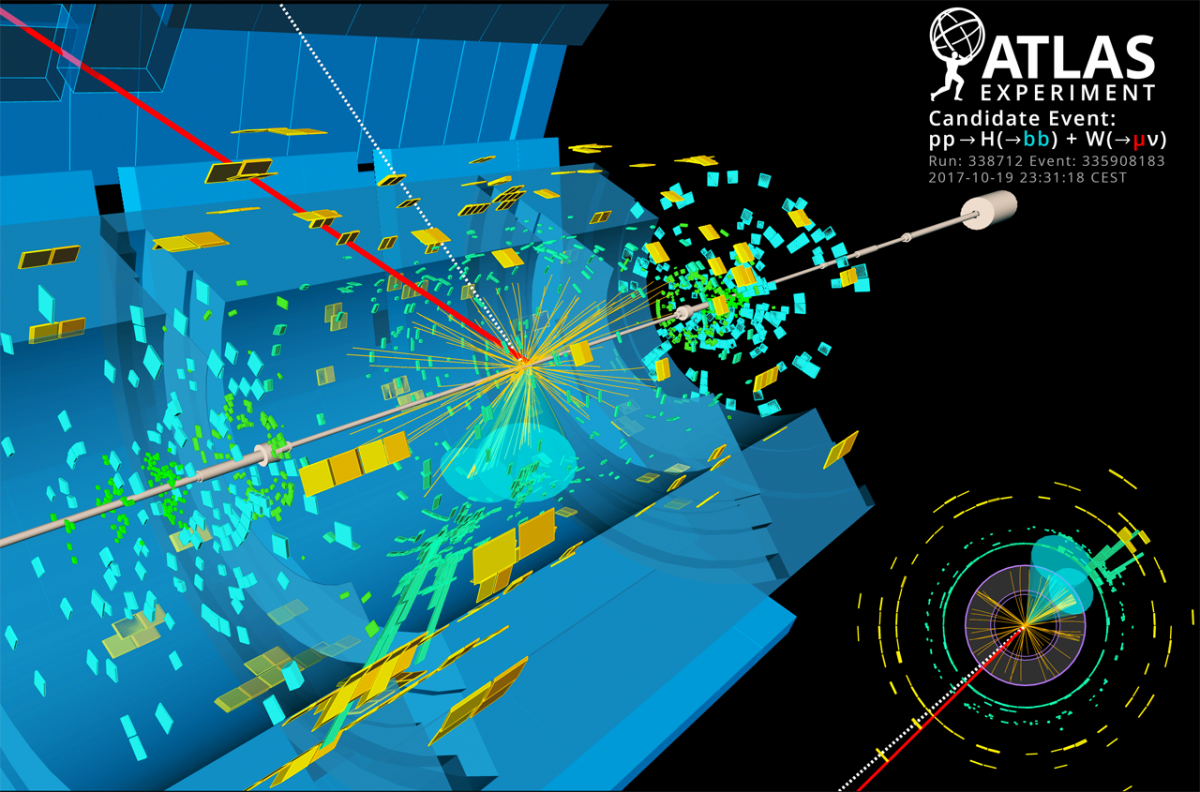Higgs boson, the once-theoretical particle that backs up our best scientific model of the universe, has been observed decaying for the first time—and this is excellent news as it means everything we understand about our physical world still holds true.
The discovery of Higgs boson in 2013 provided support for the Standard Model of particle physics. It describes three of the four fundamental forces in the universe—the strong force, the weak force, the electromagnetic force and the gravitational force—and explains how matter interacts. While incomplete, it is our best understanding of how the universe works.
By observing the Higgs boson decaying, scientists have more evidence in support of the Standard Model.
Scientists working at CERN's Large Hadron Collider made the announcement on August 28. In a statement, they said that six years after its first discovery, the particles had been observed decaying into fundamental subatomic particles called bottom quarks. This observation is in line with what researchers had predicted: "[It] is consistent with the hypothesis that the all-pervading quantum field behind the Higgs boson also gives mass to the bottom quark," CERN said.

To spot the decay, researchers had to filter out the "background noise" of other bottom quarks being produced through proton-proton collisions. Once they had done this, they had to extract the signal of the decaying Higgs boson by combining data from the two runs of the LHC. After extensive analysis from two seperate teams, they were able to confirm the observation.
CERN Director for Research and Computing Eckhard Elsen said: "The experiments continue to home in on the Higgs particle, which is often considered a portal to new physics. These beautiful and early achievements also underscore our plans for upgrading the LHC to substantially increase the statistics. The analysis methods have now been shown to reach the precision required for exploration of the full physics landscape, including hopefully new physics that so far hides so subtly."
Having a more robust Standard Model will help scientists answer fundamental questions about the universe. Stephen Sekula, a physicist from Southern Methodist University who worked on the CERN project, said: "What we've achieved getting to this point is we've pushed the boundaries of technology in both computing and electronics just to make this observation. Technology as we know it will continue to be revolutionized by fundamental curiosity about why the universe is the way it is.
"As for what we will get from all this experimentation, the honest answer is I don't know. But based on the history of science, it's going to be amazing."
Uncommon Knowledge
Newsweek is committed to challenging conventional wisdom and finding connections in the search for common ground.
Newsweek is committed to challenging conventional wisdom and finding connections in the search for common ground.
About the writer
Hannah Osborne is Nesweek's Science Editor, based in London, UK. Hannah joined Newsweek in 2017 from IBTimes UK. She is ... Read more
To read how Newsweek uses AI as a newsroom tool, Click here.








